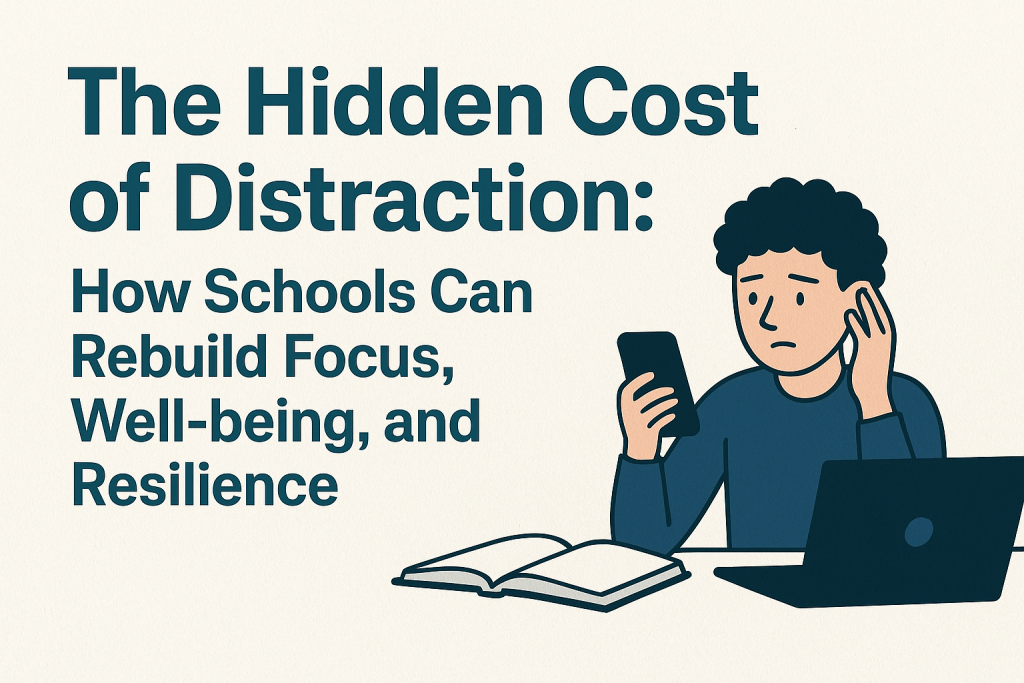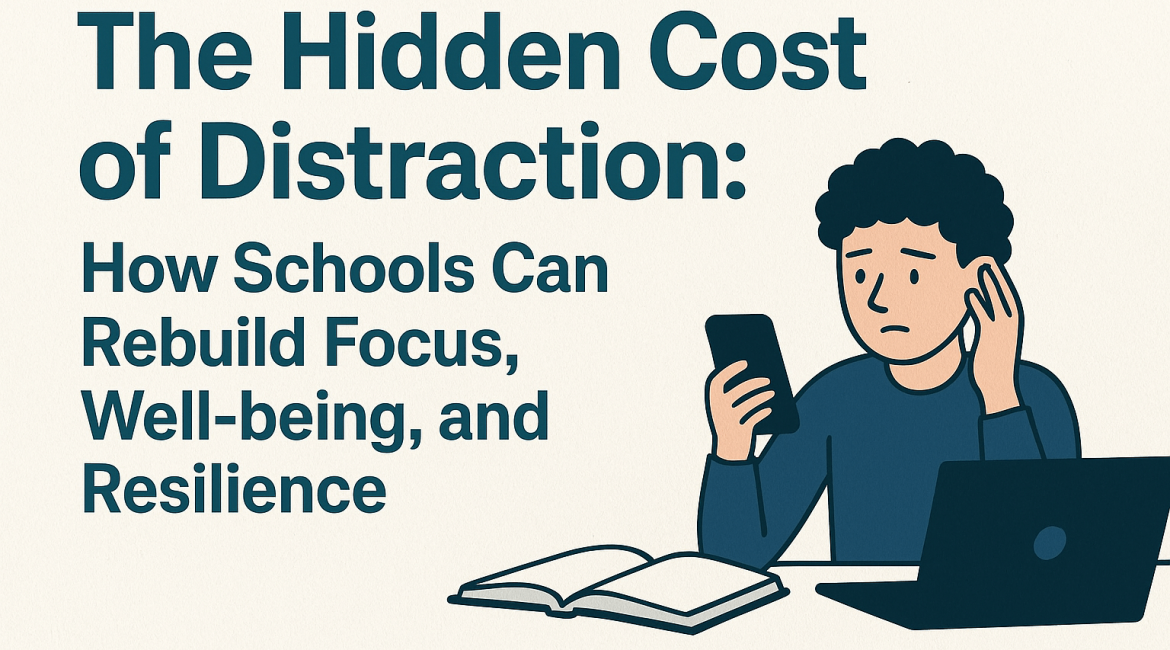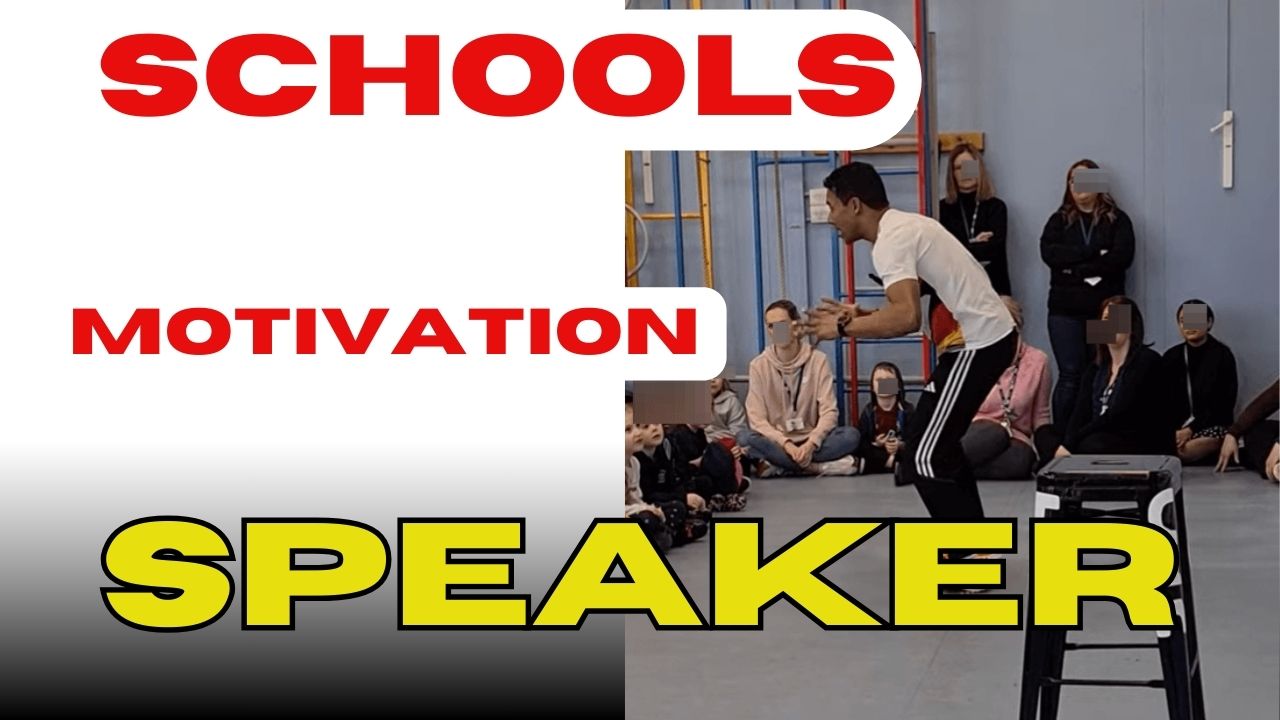The Hidden Cost of Distraction: How Schools Can Rebuild Focus, Well-being, and Resilience

In classrooms across the country, the glow of a smartphone screen has become the modern-day equivalent of a passing note—except this one has far greater consequences. According to the Programme for International Student Assessment (PISA), students distracted by smartphones during class scored 15 points lower in math compared to their more focused peers. That’s not just a statistic—it’s a wake-up call.
The truth is, our students are not just distracted; they’re overstimulated. Between social media notifications, multitasking, and digital overload, attention spans have been stretched to breaking point. This isn’t just affecting academic performance; it’s reshaping how young minds process information, engage in problem-solving, and retain knowledge.
The Multitasking Myth
Many students believe they can listen to a teacher, text a friend, and check TikTok all at once. But research published in the Global Journal of Advanced Research tells a different story. It shows that divided attention—also known as cognitive overload—causes students to take longer to complete tasks and reduces accuracy. In other words, multitasking doesn’t make students more efficient; it makes them slower and less precise.
This has profound implications for how schools approach digital literacy and study habits. Encouraging structured focus time, incorporating device-free learning zones, and teaching students how to manage cognitive load can dramatically improve both academic outcomes and emotional well-being.
Teacher Resilience: The Ripple Effect
However, we can’t talk about student well-being without addressing the well-being of those leading the classroom. Teaching today involves far more than lesson plans and marking. Teachers are mentors, emotional anchors, and sometimes, the only stable figure in a young person’s daily life.
A PubMed Central study highlights that strengthening teacher resilience not only enhances the teaching experience but also has a positive ripple effect on students’ well-being and academic success. When teachers feel supported, motivated, and equipped to handle stress, they model emotional regulation and perseverance—traits their students unconsciously absorb.
Resilient teachers create resilient classrooms. Schools that invest in professional development around resilience, mindfulness, and well-being see noticeable improvements in staff morale, student engagement, and overall performance.
Building a Culture of Focus and Flourishing
So how do schools translate this research into action? It begins with small, consistent shifts:
- Digital mindfulness: Encourage students to track their screen time and reflect on how it affects mood and concentration.
- Well-being integration: Include brief mental resets, breathing exercises, or movement breaks between lessons.
- Teacher support networks: Provide safe spaces for teachers to share experiences, learn resilience strategies, and feel valued.
How Schools Can Rebuild Focus, Well-being, and Resilience
When focus, well-being, and resilience are embedded into school culture, both students and teachers thrive. The goal isn’t just better test scores—it’s stronger minds, calmer classrooms, and a generation that knows how to balance technology with the power of presence.
As a renowned school wellbeing, resilience and positive mindset keynote speaker, having delivered talks to over 250 schools, Courtney Orange offers highly insightful and engaging keynote talks, workshops and engaging sessions for students, parents and teachers.
Talk and workshop derations vary from between 30min – 1hr long
Should you require any further details on the talk topics, and how students can benefit from one of Courtney’s talks, please send through an email to info@courtneyorange.com




